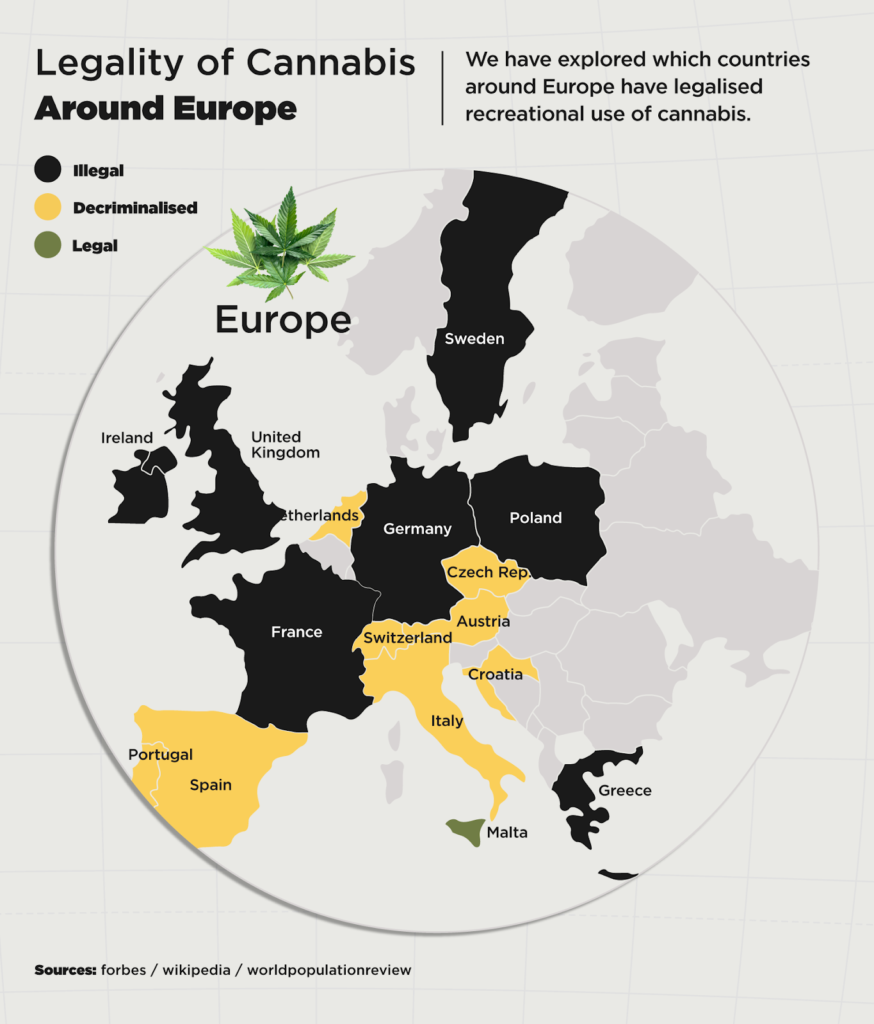
Over the past few years, many countries across Europe have changed their stance on the laws surrounding cannabis use, with some decriminalising it, while others have dropped legal consequences altogether. While some argue that this change in attitude has the benefit of keeping drug use and crime down, addiction experts have warned of the ramifications legalisation of cannabis will have on addiction and how much people use the substance.
In fact, in 2022 a survey revealed that over one in ten (11.5%) of British adults said that they used cannabis every day that year and thats with legal sanctions in place.
As part of a new report, the data experts at Private Rehab Clinic Delamere have analysed the different regulations around the world when it comes to cannabis use and revealed what this could mean for addiction in the future.
According to the data, at present, countries including the Netherlands, Switzerland, Austria, Croatia and the Czech Republic have all chosen to decriminalise the use of cannabis. This means that the drug is still prohibited by law, but certain acts around the drug such as personal use, are no longer regarded as criminal, meaning that you would get a lesser punishment such as drug treatment, or a fine instead of serving jail time.
However, unlike legalisation, decriminalisation means laws are still intact for offences such as production, sale and supply of the drug.

On the other end of the spectrum, countries such as the United Kingdom, France, Germany and Sweden have all opted to keep the substance illegal. However, some countries have even gone so far as to legalise the substance completely, with governments in Canada, Georgia, Malta, Mexico, South Africa and Thailand all taking this stance.
Below, Dr Catherine Carney, Psychiatrist at Delamere, has weighed in on the laws surrounding cannabis and explained why its decriminalisation and legalisation in some countries across Europe can be dangerous:
“Many individuals claim – or have been led to believe – that cannabis is not addictive when this could not be further from the truth. In fact, some studies indicate that one in ten individuals who use cannabis become dependent.
“Taking this into account, it’s hardly surprising that the widespread use of the drug, alongside ongoing discussions around its legalisation, is a worrying concern to those with firsthand experience of the dangers cannabis can pose. Addiction becomes increasingly likely the more a person consumes, as their brain adapts to be able to tolerate larger and stronger amounts of the substance over a period of time.
Dr Catherine Carney, and the experts at Delamere, are available for expert commentary and exclusive interviews.




















